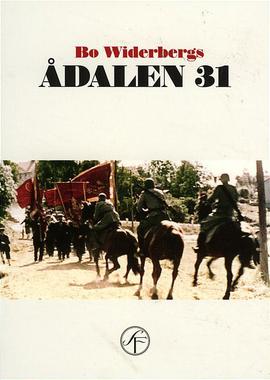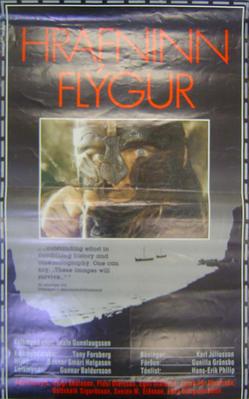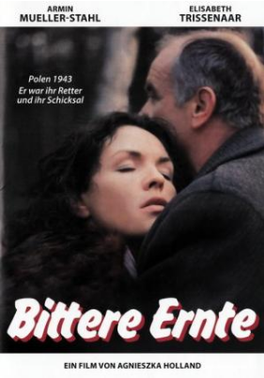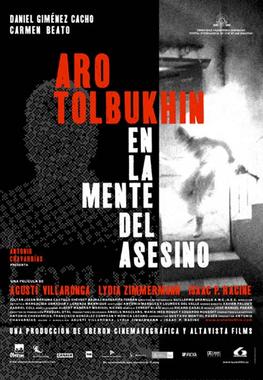The Twins is a 1993 novel by Tessa de Loo about the sisters Lotte and Anna, who are separated at the age of six when their father dies. The story is set during World War II.

Last Life in the Universe is a 2003 Thai romantic crime film directed by Pen-Ek Ratanaruang. The film is notable for being trilingual; the two main characters flit from Thai to Japanese to English as their vocabulary requires. The film stars Japanese actor Tadanobu Asano and Sinitta Boonyasak.

The Twilight Samurai is a 2002 Japanese historical drama film co-written and directed by Yoji Yamada and starring Hiroyuki Sanada and Rie Miyazawa. Set in mid-19th century Japan, a few years before the Meiji Restoration, it follows the life of Seibei Iguchi, a low-ranking samurai employed as a bureaucrat. Poor, but not destitute, he still manages to lead a content and happy life with his daughters and his mother, who has dementia. Through an unfortunate turn of events, the turbulent times conspire against him.

Ådalen 31 is a 1969 Swedish drama film directed by Bo Widerberg. It depicts the 1931 Ådalen shootings, in which Swedish military forces opened fire against labour demonstrators in the Swedish sawmill district of Ådalen killing five people, including a young girl.

When the Raven Flies ) is a 1984 Icelandic-Swedish adventure film written and directed by Hrafn Gunnlaugsson. The story is set in Viking Age Iceland. The film was selected as the Icelandic entry for the Best Foreign Language Film at the 57th Academy Awards, but was not accepted as a nominee. In 2016, online newspaper Kjarninn voted it as the best Icelandic film of all time.

Everybody's Famous! is a 2000 Belgian satirical comedy film directed by Dominique Deruddere about a young teenage girl who is pushed by her poor parents to become a musical star. It was nominated for Best Foreign Language Film at the 73rd Academy Awards.
Thekla Simona Gelsomina Reuten is a Dutch actress.

Bon Voyage is a 2003 French film directed by Jean-Paul Rappeneau, starring Isabelle Adjani, Gérard Depardieu, Virginie Ledoyen and Grégori Derangère; it's very loosely inspired by Professor Lew Kowarski's smuggling of the world's only supplies of heavy water out of France following its occupation by the Nazis.

Bernard Cornelis (Ben) Sombogaart is a Dutch film and TV director.

Bluebird is a 2004 Dutch television film directed by Mijke de Jong. It is the first in a trilogy of films made by de Jong about young women becoming adults. The film was selected by the Netherlands as its official Foreign Language Film submission for the 78th Academy Awards, but was disqualified by the Academy of Motion Picture Arts and Sciences because it had been shown on television.

Angry Harvest is a 1985 West German film directed by Agnieszka Holland, based on a novel written by Hermann Field and Stanislaw Mierzenski while they were imprisoned by the Polish government in the early 1950s. The circumstances surrounding the novel's creation are detailed in Field's autobiographical account, Trapped in the Cold War: The Ordeal of an American Family.

Twin Sisters of Kyoto is a 1963 Japanese drama film directed by Noboru Nakamura, based on the novel The Old Capital (1962) by Nobel Prize laureate Yasunari Kawabata. The film was Japan's submission for the 1964 Academy Award for Best Foreign Language Film.
The Red Lanterns is a 1963 Greek drama film directed by Vasilis Georgiadis and based on a play by Alekos Galanos. It was nominated for the Academy Award for Best Foreign Language Film. It was also entered into the 1964 Cannes Film Festival.
The Idiot Returns is a 1999 Czech film directed by Saša Gedeon. The movie is loosely based on The Idiot by Fyodor Dostoevsky. It was the Czech Republic's submission to the 72nd Academy Awards for the Academy Award for Best Foreign Language Film, but was not accepted as a nominee.

Little Crumb is a 1999 Dutch family drama film written and directed by Maria Peters, based on the 1923 novel by Chris van Abkoude. The film was produced by Shooting Star Filmcompany and KRO. it was released in the Netherlands on December 23, 1999, by Buena Vista International.

Nadja Uhl is a German actress.

A Leap in the Dark is a 1980 Italian film written and directed by Marco Bellocchio. It stars Michel Piccoli and Anouk Aimée, who won the Best Actor and Best Actress prizes respectively at the 1980 Cannes Film Festival. The film also won the David di Donatello for Best Director and was selected as the Italian entry for the Best Foreign Language Film at the 53rd Academy Awards, but was not accepted as a nominee.

Aro Tolbukhin: In the Mind of a Killer is a 2002 film, written and directed by Isaac Pierre Racine, Agustí Villaronga, and Lydia Zimmermann. It was the 2003 Mexican submission for the Academy Award for Best Foreign Language Film, but was not nominated.

Hanneke Niens is a Dutch Oscar nominated producer of films, dramaseries and documentaries and owner and CEO of the production company KeyFilm. She incidentally guest tutored at the Netherlands Film Academy and the international audiovisual organization EAVE.

Narcosis is a 2022 Dutch drama film directed and co-written by Martijn de Jong. The film won 3 Golden Calf. It was selected as the Dutch entry for the Best International Feature Film at the 95th Academy Awards, but it was not nominated.
















